- Home
- Adam Croft
Rough Justice (Knight & Culverhouse Book 4) Page 8
Rough Justice (Knight & Culverhouse Book 4) Read online
Page 8
‘Someone who’d hired it before?’
‘Possibly, although it’s fairly new and has only been hired out six times. It’s never been south of Coventry, apparently. But get this. I was on their website trying to find their phone number, and they’ve got listings of all their vans for hire. With pictures. Showing the number plates. To be honest, that’s probably what I would’ve done too. Not difficult these days what with the internet and everything. Only tricky bit would be getting the physical plates made up, but that’s far from impossible.’
‘That sounds good enough for me, Frank. Get the company to get onto their web hosts and get the server logs. If we can get a list of people who’ve looked at that page, we can narrow it down to our man.’
Frank grinned from ear to ear. ‘Looks like we might have our man!’
25
Suzanne Corrigan had been feeling stronger every day. She was a naturally shy person, but keen to ensure that she got the right story for her paper. Coming face to face with the Mildenheath Ripper had taught her a lot about life, and she was finding the mundane things far less daunting after that particular ordeal.
For one thing, she’d learnt that life was too short. Although she’d always tried to keep her moral compass in check — something which was very difficult in the world of journalism — she now understood the sanctity of life and saw the damage that could easily be done. Even so, she didn’t feel she was prying by trying to find out exactly what was going on in the world of Jack Culverhouse.
He’d been taking leave from work, that much she knew. That wasn’t particularly surprising, though, after the time he’d been having of it recently. Mildenheath CID hadn’t exactly been the quietest of police departments in the last few years. As far as she could see, though, there seemed to be more to it. Signs and signals had been coming her way as a result of a dogged press gang who were keen to milk as much from the Mildenheath Ripper story as they could, combined with Jack Culverhouse’s propensity to not give a shit. The fact that he seemed to be going off the rails, then, was fairly easy to ascertain.
What was most intriguing, though, was the secrecy that had surrounded the body found in Southbrook. It was a murder; she knew that much due to the fact that CID had attended the scene and forensics were working all hours combing the house for clues. What had really piqued her interest, though, was just how much secrecy was being placed on it all.
She prided herself on having a good relationship with the police — she deemed that vital to the job — but they’d gone completely cold on her with this one. She told herself that could be down to any number of things: the new DCI running the show while Culverhouse was on leave or even her stupid decision to try and put Wendy Knight on the spot about Jeff Brelsford’s killer having murdered him in some sort of vigilante attack.
Perhaps that wasn’t such a stupid comment, though. In light of recent developments she could actually have been much closer to the truth than she’d known. What if the reason the police were reluctant to release any information on the Southbrook death was because they thought the same person had killed both people? Her only way of finding out was to discover who the dead body in Southbrook was and to do a bit of digging around to find out some connections, but that made her uneasy.
She didn’t want to compromise her good relationship with the police — that was never a good idea for a local crime reporter — and her sense of morality kept telling her she had to do things the proper, right way. Sometimes, though, that moral compass seemed to suffer from magnetic interference.
Deciding to bite the bullet, she picked up the phone before she could even think of what she was going to say and dialled Wendy Knight’s number. After four rings, the phone was answered. She could tell straightaway that DS Knight wasn’t massively keen on speaking to her. Regardless, she decided the best move was to get straight to the point.
The first thing she noted was that Wendy seemed somewhat distracted as she answered the phone. Once Suzanne had introduced herself, though, she soon had her attention.
‘I just wanted to ask you a couple of questions,’ she said. ‘It’s related to what I asked you the other day at the memorial service.’
There was a short pause before Wendy spoke. ‘What about it?’
‘Are you able to tell me if there’s any link between the two deaths?’
‘That’s something we’re investigating at the moment,’ Wendy said. ‘But I certainly would not suggest speculating about it. If you want anything further, you’ll have to speak to the senior investigating officer.’
Nice move, Suzanne thought. Put the pressure on Malcolm Pope instead. Even though she didn’t work for the police, the office politics at Mildenheath CID were all too familiar to her by now. ‘Are you able to give me any more information on the body discovered in Southbrook?’ she asked. ‘Only it seems to have been kept rather quiet. I wondered why that was.’
Wendy’s response was professional and noncommittal. ‘We’ll be making an announcement in due course if we deem it prudent. And I don’t want any of this going into any newspaper articles, alright? Not until the DCI has cleared it for public release.’
‘I understand,’ Suzanne said. ‘Onto something else, you know there’s a public interest in Jack Culverhouse at the moment, right? Especially after the Ripper case. I just wondered how he was getting on. I hear he’s on leave.’
‘He’s had a very busy couple of years,’ Wendy said. ‘He’s not had so much as a holiday in God knows how long, so I think we can safely say he deserves a rest.’
‘So it was voluntary then?’ Suzanne asked, putting Wendy on the spot.
Wendy said nothing for a few moments.
‘Has he been subject to disciplinary action?’ Suzanne said, probing further.
Wendy still said nothing. She was trying to think how to word her response, but nothing was coming to mind.
‘DS Knight, I think the public have a right to know whether or not—‘
‘No, Suzanne, they do not,’ Wendy replied, suddenly finding her voice. ‘What the public do have a right to know, however, is how and why you’ve been digging up information about murder victims’ employment histories.’
‘I already told you,’ Suzanne said. ‘It’s a small town.’
Wendy was furious now. ’No, Suzanne, that’s bullshit. You can’t just get away with dodging my questions with vague answers and demanding that I answer everything of yours. I’m afraid it doesn’t work like that. If you want anything — anything — more out of me on this case and any others, apart from an official injunction stopping you from publishing a word, then you’re going to have to tell me where that information came from.’
Wendy knew she was playing with fire. She needed the press as much as the press needed the police, but Suzanne didn’t have to know that. The threat of an injunction should still have its desired effect, she thought. What she couldn’t risk was having someone spreading their own theories around Mildenheath about who may or may not have committed a sexual offence at some point in their life. Not while there was a vigilante roaming the streets, anyway.
‘The connection is me,’ Suzanne said finally. ‘My best friend is the older sister of Katie McCourt.’
‘Older sister?’ Wendy asked, trying to do the maths. Fortunately for her, Suzanne had picked up on it.
‘Yeah, she’s nine and a half years older than Katie. We shared a flat together when I first came to live from Cardiff. I wanted to get into journalism but most papers want degrees or qualifications, which I don’t have. The Mildenheath Gazette was one of the only ones that didn’t need them.’
That didn’t surprise Wendy in the slightest. The Gazette didn’t exactly have a reputation for quality and accuracy.
‘That’s how I ended up here,’ Suzanne continued. ‘I wanted to get out of Cardiff anyway and liked the idea of being nearer London, so Mildenheath seemed ideal. It took me a little while to get onto the Gazette, but I looked online for a flat and found a site where people advertise for fl
atmates. That’s where I found Anna’s advert. She wanted to flat-share with a woman of a similar age, so I got in touch.’
‘And she just decided to tell you her younger sister was sexually molested by Jeff Brelsford?’ Wendy asked.
‘No, of course not. It wasn’t like that. I was still working as a junior, writing up the crap about lost dogs, village fêtes and all that sort of stuff. You know, the articles that are attributed to “Gazette Reporter”. The crime reporter job hadn’t come up yet. Anna came home one day and was devastated. We opened a bottle of wine and she told me what had happened.’
‘But this was a year ago,’ Wendy said. ‘You mean to say you just remembered it all and joined the dots?’
Suzanne let out an involuntary laugh. ‘I have a memory for names. I don’t often forget them.’
Wendy realised she needed to sit on this for a bit. If Suzanne Corrigan had a direct connection to Katie McCourt, she might have some extra insight into the family’s real thoughts and feelings towards Jeff Brelsford.
‘Can we meet?’ Wendy said. ‘Perhaps go and grab coffee somewhere. I think it’d be good to make sure we’re both singing from the same hymn sheet so we can get along.’
‘Sounds good to me,’ Suzanne said, perhaps sensing the opportunity to gather some more information on the case. ‘And then you can tell me all about Jack Culverhouse.’
26
Wendy’s head was pounding more than it usually did. Probably just a tension headache, she told herself. Having to spend an extra hour or two each evening writing a report for Malcolm Pope probably didn’t help. Sleep was hard to come by during an investigation as it was, and the extra stress she and the rest of the team were being put under wasn’t going any way to making things better.
She’d always assumed that things might be better under a different DCI. Not that she ever wanted Culverhouse gone, but she had often wondered what would change if someone else were in charge. She quickly realised that, as with most things, neither extreme was the answer and the best way forward lay somewhere in the middle. Culverhouse’s bull-in-a-china-shop approach was far from ideal and had its own drawbacks to say the least, but Malcolm Pope seemed to want to turn decent officers into pen-pushers. Some people didn’t mind too much.
Debbie Weston, for example, had always been quite happy to do whatever needed to be done and wasn’t fussed about furthering her own career. She was a thoroughly decent officer, but didn’t have any airs or pretensions. Steve Wing and Frank Vine were similar in that respect but weren’t exactly keen on the idea of being office-bound, especially as it added to their workload. Their favoured way forward was to get results by doing as little as possible.
She could see now why Jack Culverhouse was far from keen on Malcolm Pope. Their styles and ways of working and managing a team were so far removed from each other that it would be completely impossible for them to work together. As far as Culverhouse was concerned, he’d been heading up the CID unit at Mildenheath for long enough to know what worked — and it usually did — but Pope clearly saw him as something of a dinosaur, a relic of the old way of doing policing and someone who was no longer relevant.
Tensions had come to a head during the hunt for the Mildenheath Ripper, with Pope claiming that the killer could’ve been caught sooner and more lives could’ve been saved. Publicly, Culverhouse disagreed vehemently and he’d been fortunate to have the support of the Chief Constable, who wasn’t Malcolm Pope’s biggest fan either. The fact that Culverhouse had been extremely reluctant to follow the Ripper line of the inquiry when it was first postulated had been hastily glossed over.
Focusing on the mistakes would’ve made no difference. Learning from things that went wrong was usually beneficial, but in the case of the Mildenheath Ripper it would have caused more harm than good. Besides which, the town was unlikely to experience another serial killer, wasn’t it? Unfortunately for Wendy, she knew that serial killings required three or more murders by the same person. They had two on their hands already, and if their theory about the vigilante was right, there’d be more.
Another series of murders in Mildenheath would probably finish the CID unit off and result in it being amalgamated into Malcolm Pope’s unit in Milton House. Jack Culverhouse’s career would certainly be finished, and Wendy had seen what a temporary suspension had done to the man. Retirement would be the death of him.
A thought crossed her mind as to whether Malcolm Pope was being deliberately obstructive in the way he was temporarily running the unit. It’d be in his best interests, after all. Another perceived Mildenheath failure would mean he’d effectively run CID in the county. He had a glowing record at Milton House and one little blip now wouldn’t blot his copy book in the slightest, especially as he could simply blame it on the old-fashioned way of working and the culture at Mildenheath, which he was convinced was bad for policing.
Her silence was broken by the arrival of DS Steve Wing, who entered the room with a beaming smile on his face.
‘Got some big news on the Jeff Brelsford and Terry Kendall murders,’ he said, standing proud as punch.
‘Great,’ Wendy replied, resting her head on her hand. ‘DCI Pope’s upstairs.’
‘Nah. If it’s not written on paper he’s not interested, so sod him. I’ve come to you instead.’
Wendy smiled at this as Steve continued.
‘We’ve found a connection between the killings. I mean, apart from them being practically identical, I mean. A connection between the victims. Remember how Jeff Brelsford was cautioned for sexual harassment? Well get this. The tech lads have been through Terry Kendall’s laptop. Kiddy porn. Tons of the stuff.’
‘Are you serious?’ Wendy asked.
‘Deadly. They reckon that’s probably just the tip of the iceberg though. Apparently there was some secret browser or something on there which he could’ve used to access the more hardcore stuff and it wouldn’t leave a trace. My question is if the stuff they’ve found is just the soft stuff, what the hell’s he been hiding with the secret browser thing?’
‘Jesus, he was a schoolteacher wasn’t he?’
‘Yep. Doesn’t mean anything though. You’d be surprised.’
‘I’m just amazed he didn’t get found out before now if he was working that closely with children,’ Wendy replied.
‘Might well’ve done. All sorts of things get covered up. You see that with all these old telly stars for one.’
‘True. What sort of material are we talking?’
‘Mostly 8s and 9s, a couple of 5s and 6s,’ Steve replied, referring to the COPINE scale for grading the severity of indecent images of children. The most severe level, 10, consisted of physical beating and whipping or involved an animal. ‘That’s not all, though. I ran his name through ViSOR. There’s an expired RSHO.’ A Risk of Sexual Harm Order was a record showing that an individual posed a serious risk to children because of at least two previous incidences of sexual contact or communication with a child under the age of sixteen. ‘He’d been Facebook grooming, basically. He had the RSHO for two years, expired a few months back.’
‘Christ. Makes Jeff Brelsford seem a bit flirty in comparison.’
‘Well he was a dirty old bugger, but I see what you mean,’ Steve said. ‘Then again, so’s Frank.’
The pair allowed themselves to chuckle for a moment. Sometimes you had to. The chuckling soon stopped, though, as soon as Malcolm Pope came swaggering into the room.
‘What’s the latest?’ he demanded, without even saying hello.
Seeing an opportunity to cut a few words from her end-of-day report, Wendy decided to update him on the findings from Terry Kendall’s laptop.
‘I see,’ Pope replied, typically non-committal. ‘I must say, it makes you wonder how he managed to get away with it. You’d’ve thought he would’ve been caught by now. The team at Milton House are pretty hot on tracing people who download this sort of material.’
‘Maybe not as hot as you thought,’ Wendy said, unable to res
ist the dig.
‘Indeed. No record on ViSOR, presumably?’
The incident room went very quiet as the other officers looked over at Debbie Weston, whose face was almost like a mannequin, or a rabbit caught in the headlights.
‘You did run his details through ViSOR, didn’t you, Detective Constable Weston?’ Pope asked.
‘Uh, I don’t recall, sir,’ Debbie replied. ‘I’ve been doing a lot of paperwork. It’s easy to get confused between—’
Pope held out his hand. ‘Victim background checklist.’
Debbie lifted the pile of papers on her desk and began to sort through them until she found the sheet she was looking for. She handed it to Pope, who took a few seconds to scan down it, his face emotionless.
‘You’ve ticked ViSOR lookup.’
‘Oh. Well, I must have looked him up then.’
‘Detective Sergeant Knight, will you run Terry Kendall’s details through ViSOR?’
Wendy didn’t much fancy being the one who landed a fellow officer in hot water. ‘Sir, I’m not sure if we should—’
‘Run Terry Kendall’s details through ViSOR, Detective Sergeant Knight,’ Pope repeated, his eyes never breaking contact with Debbie Weston’s.
Wendy reluctantly did as she was told.
Her heart sank as she read the words on the screen in front of her.
‘No charges, but listed as a potential risk to minors,’ she whispered.
Malcolm Pope remained silent for a moment before blinking a few times and speaking in a quiet voice. ‘The Chief Superintendent will be in touch soon, Detective Constable Weston.’
With that, he left the room.
27
As a police officer, interviewing people tended to be met with two distinct reactions. A good number of people would open up completely, feeling that they could trust the police and were able to tell them absolutely everything. On the other hand, there were many people who clammed up and didn’t say a word about anything useful. The problem was that it wasn’t always easy to work out which was happening. Quite often you’d think you were getting a lot of information from someone, only to find out it was either inaccurate or that they’d spoken a lot but said nothing.

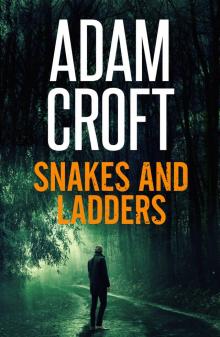 Snakes and Ladders
Snakes and Ladders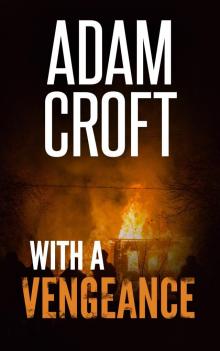 With A Vengeance
With A Vengeance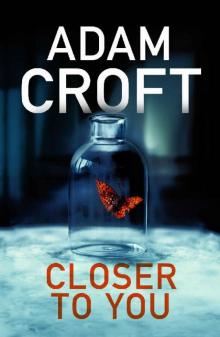 Closer to You
Closer to You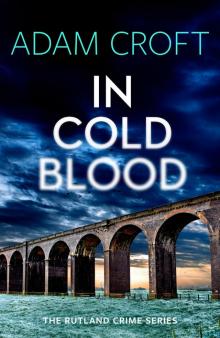 In Cold Blood
In Cold Blood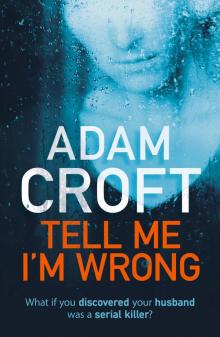 Tell Me I'm Wrong
Tell Me I'm Wrong![[Knight and Culverhouse 09] - In Plain Sight Read online](http://i1.bookreadfree.com/i/03/16/knight_and_culverhouse_09_-_in_plain_sight_preview.jpg) [Knight and Culverhouse 09] - In Plain Sight
[Knight and Culverhouse 09] - In Plain Sight Dead & Buried
Dead & Buried Too Close For Comfort
Too Close For Comfort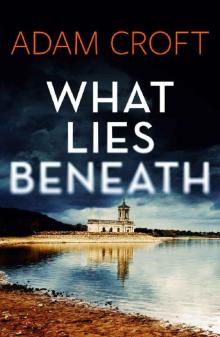 What Lies Beneath (Rutland crime series Book 1)
What Lies Beneath (Rutland crime series Book 1)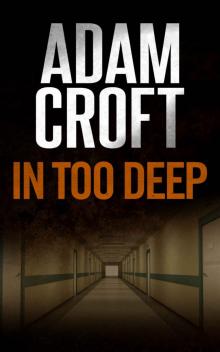 In Too Deep (Knight & Culverhouse Book 5)
In Too Deep (Knight & Culverhouse Book 5) Gone
Gone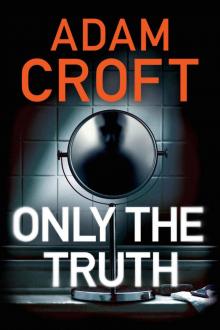 Only the Truth
Only the Truth Kempston Hardwick Mysteries — Box Set, Books 1-3
Kempston Hardwick Mysteries — Box Set, Books 1-3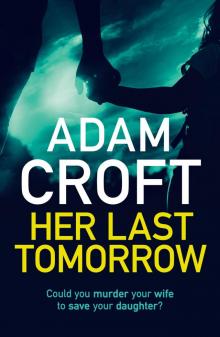 Her Last Tomorrow
Her Last Tomorrow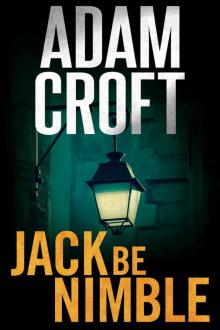 Jack Be Nimble (Knight & Culverhouse Book 3)
Jack Be Nimble (Knight & Culverhouse Book 3)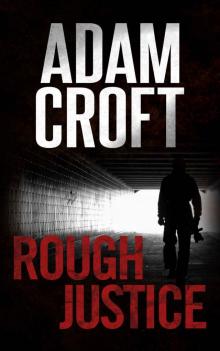 Rough Justice (Knight & Culverhouse Book 4)
Rough Justice (Knight & Culverhouse Book 4)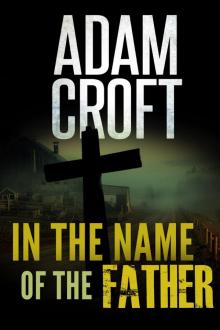 In the Name of the Father
In the Name of the Father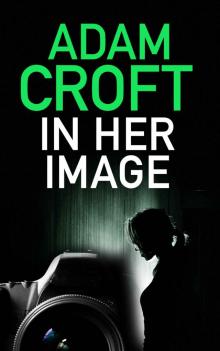 In Her Image
In Her Image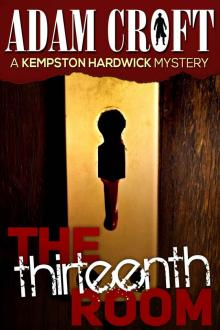 The Thirteenth Room (Kempston Hardwick Mysteries Book 4)
The Thirteenth Room (Kempston Hardwick Mysteries Book 4)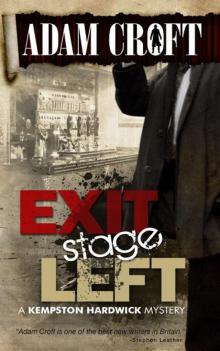 Exit Stage Left (Kempston Hardwick Mysteries Book 1)
Exit Stage Left (Kempston Hardwick Mysteries Book 1)